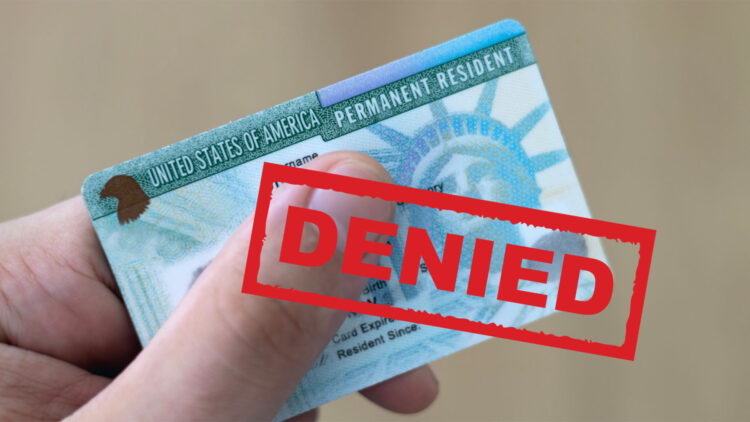One of the best things about living in the United States is getting to travel, but if you have a green card, breaking the rules can get you into trouble. The most frequent error made by lawful permanent residents (LPRs), which may end up in the loss of their legal status, is staying abroad for a long period of time, according to the U.S. Citizenship and Immigration Services (USCIS).
It’s a common misconception that a single annual visit to the United States is enough to keep residency. But a person could lose their green card if immigration officials decide they no longer intend to remain in the country permanently, sometimes even at the airport when they return.
Why you can lose your green card
A green card holder’s extended absence from the country may be interpreted by the USCIS and DHS as a decision to cease permanent residency in the United States. “Abandonment of lawful permanent resident (LPR) status” is the term for this.
This doesn’t mean that LPRs are banned from traveling, but it regulates the duration and purpose of the journey. By sending a Notice to Appear (Form I-862) before an immigration judge, immigration officers can begin the removal process if they think you no longer have a continuous residence.
Additionally, since obtaining citizenship needs sustaining permanent residence in the United States for a specific number of years, an individual who loses LPR status is not eligible to apply for naturalization.
How to know if your trip could affect your status
Although there are explicit guidelines, there isn’t a single rule. It will be more difficult to show that you intended to return and settle in the U.S. permanently the longer you are abroad; short vacations are fine. And as long as you always planned to return, immigration officials may still view your absence as temporary even if an emergency prevents you from doing so. However, they might assume you no longer live in the United States full-time if you spend a lot of time overseas, even if you only go once a year.
The trip’s purpose is also important. Going on vacation is one thing, but relocating overseas for employment or other long-term obligations is quite another.
How to prove you intend to return to the United States
Lawful permanent residents are expected to demonstrate that their primary residence is still in the United States by both the DHS and the USCIS. Here are a few methods to demonstrate that:
-
As a resident of the United States, you must file your federal and state taxes.
-
Keep a residence, business, job, or bank account in the country.
-
Keep your permanent address or driver’s license in the United States.
-
Have close relatives (family) who are citizens or LPRs in the United States, like your spouse or kids.
If you have to be away for a longer period of time, you can also apply for a reentry permit, which works as documentation of your intention to return. However, this document only supports what you are saying; it does not automatically protect your status.
However, strong foreign connections, like foreign property ownership, voting in another country, or working abroad, could make immigration officials believe that you have left your U.S. residence.
Being a lawful permanent resident
It comes with rights, but also responsibilities. A green card does not grant you the right to live overseas indefinitely. You should always plan to return, travel with caution, and keep documentation of your U.S. connections, according to the USCIS and DHS.
Holding onto your green card—and eventually becoming eligible for naturalization—requires protecting your permanent residency and keeping close ties to the United States.

